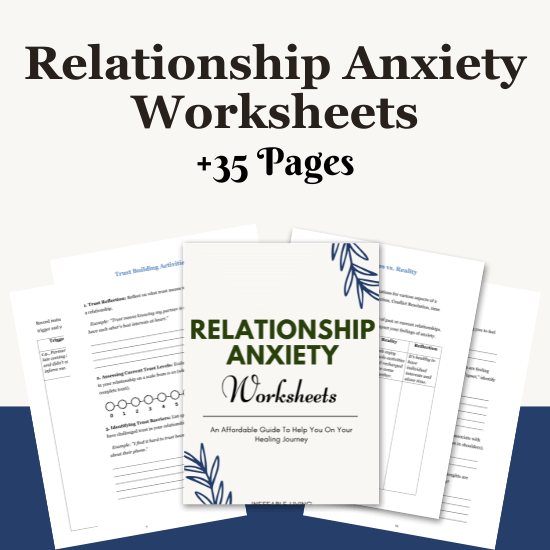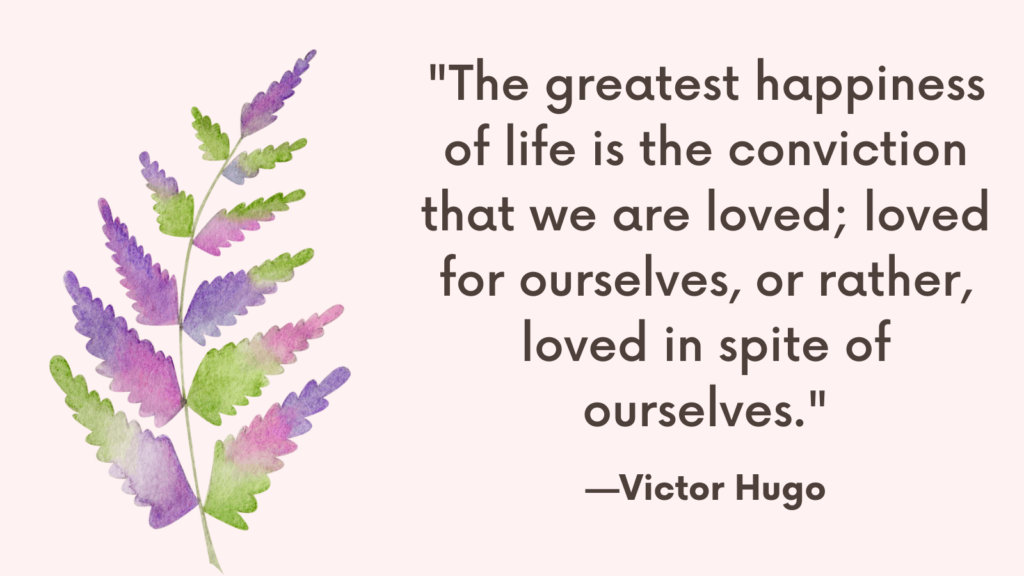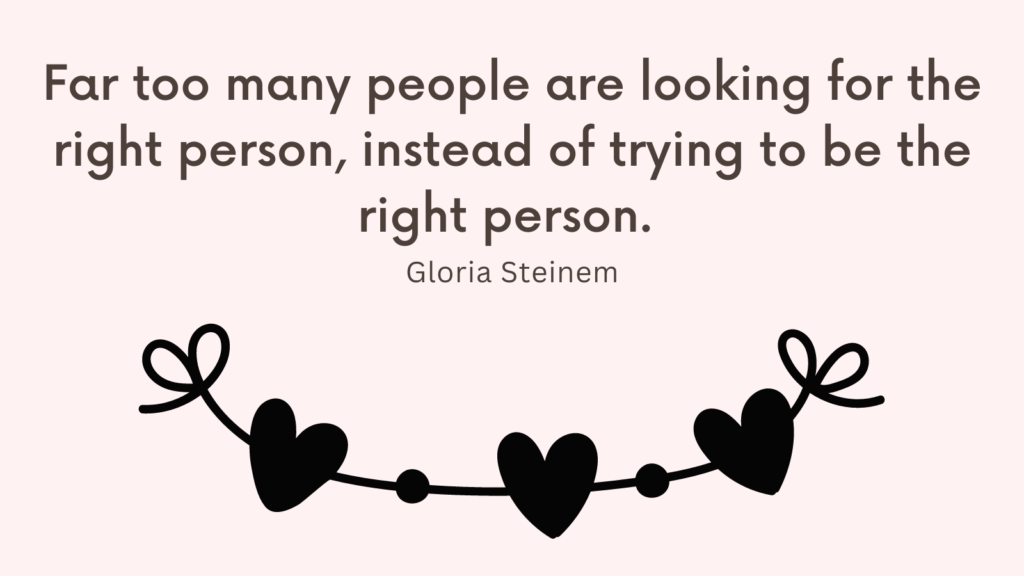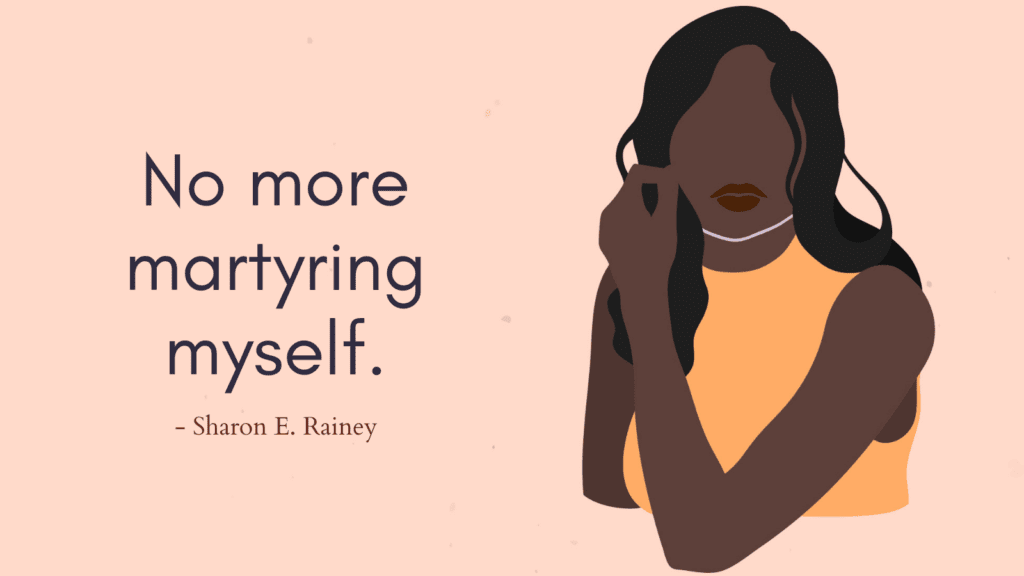Valentine’s Day can bring a wave of relationship-related anxieties, whether you’re single, dating, or in a long-term partnership.
The heightened focus on romance and relationships can lead to worries about expectations, commitment, or self-worth.
Here are some strategies to help you manage relationship anxiety and embrace the holiday with confidence and calm.
What Is Relationship Anxiety?
Relationship anxiety refers to the feelings of worry, fear, or insecurity that people may experience about their romantic relationship.
While it’s natural to have occasional concerns in any relationship, relationship anxiety is more persistent and can interfere with emotional well-being and the relationship itself.
People with relationship anxiety may constantly question their partner’s feelings, worry about their own worthiness, or fear the relationship ending, even without clear reasons for concern.
Here are some common signs of relationship anxiety:
1. Constant Need for Reassurance
People with relationship anxiety often seek reassurance from their partner to feel secure. This can include frequently asking if their partner loves them, worries about commitment, or asking for affirmation that things are okay.
2. Fear of Rejection or Abandonment
A deep fear that one’s partner may leave can lead to feelings of insecurity, even if the relationship is stable. This fear can lead to behaviors like seeking constant validation or avoiding honest communication to prevent conflict.
3. Overthinking and Catastrophizing
People with relationship anxiety may analyze their partner’s actions, words, or tone in an attempt to find hidden meanings, which can lead to jumping to negative conclusions and assuming the worst.
4. Difficulty Trusting the Partner
Trust issues are a common sign of relationship anxiety. People may question their partner’s loyalty or intentions, even if there’s no evidence of wrongdoing, leading to feelings of suspicion and jealousy.
5. Fear of Vulnerability
Anxiety can make people hesitant to be open or vulnerable, fearing that their partner may judge or reject them. This can create distance in the relationship and prevent emotional closeness.
6. Low Self-Esteem and Self-Doubt
Relationship anxiety often stems from self-esteem issues. People may doubt their worthiness or attractiveness, leading to constant questioning about whether they are “good enough” for their partner.
7. Avoidance or Sabotaging Behaviors
In some cases, people with relationship anxiety may distance themselves or engage in behaviors that harm the relationship as a way to cope with fear. They might push their partner away or create conflict as a defense mechanism.
Related: Is It ROCD Or Am I Not In Love? Top 4 Powerful Ways to Overcome Relationship Anxiety And ROCD
How to Manage Relationship Anxiety Around Valentine’s Day?
1. Set Realistic Expectations
Valentine’s Day is often idealized, which can create unrealistic expectations for relationships or the need to celebrate in a particular way. Setting realistic expectations helps reduce pressure and allows you to appreciate the day for what it truly is.
– How to Practice: Reflect on what genuinely matters to you in a relationship or celebration. Focus on enjoying meaningful moments instead of grand gestures. Remind yourself that love can be celebrated in many ways, not just the “perfect” way.
Related: Top 15 Journal Prompts For Relationship Anxiety
2. Communicate Openly with Your Partner
If you’re in a relationship, discussing Valentine’s Day plans openly with your partner can prevent misunderstandings and relieve pressure. Clear communication helps both of you feel heard and on the same page.
– How to Practice: Talk to your partner about what each of you envisions for the day, including expectations and comfort levels. This simple conversation can help avoid unmet expectations or assumptions, fostering mutual understanding and support.
3. Shift Focus to Gratitude and Appreciation
When relationship anxiety surfaces, focusing on gratitude can help shift your perspective. Appreciating what you have, whether it’s your partner, friends, or self, can reduce pressure and increase feelings of satisfaction.
– How to Practice: Make a list of qualities you appreciate about your partner or yourself, or reflect on positive aspects of your relationship or friendships. Practicing gratitude reinforces positive feelings and eases anxiety.
Related: Do I Have Relationship Anxiety Quiz
4. Reframe Negative Self-Talk
Valentine’s Day can trigger self-critical thoughts, especially if you’re single or feeling insecure about your relationship. Reframing these thoughts with compassion can help you approach the day with a healthier mindset.
– How to Practice: Notice any negative thoughts that arise, like “I’ll never find someone” or “My relationship isn’t good enough.” Challenge these thoughts by focusing on your worth and unique qualities, or reminding yourself that love exists in many forms, not just romantic relationships.
5. Plan a Day That Brings You Joy
Anxiety often arises from the pressure to follow Valentine’s Day “rules.” Planning a day that’s centered around activities you genuinely enjoy can reduce this anxiety, whether you’re single or in a relationship.
– How to Practice: Make a list of things that make you feel good—like a cozy movie night, a self-care day, or a favorite meal—and plan to include these in your Valentine’s celebration. Creating a day around self-love and joy removes pressure and adds meaning to the holiday.
Related: Top 3 Reasons We You Worry and How to Stop Worrying
6. Engage in Self-Care and Self-Compassion
Self-care is essential for managing relationship anxiety, as it helps you feel grounded and reinforces your self-worth. Showing kindness toward yourself can reduce the tendency to compare your relationship or dating status with others.
– How to Practice: Spend time on activities that bring you peace, like taking a relaxing bath, meditating, or going for a walk. Use self-compassionate affirmations, like “I am enough,” to remind yourself of your inherent worth.
7. Limit Social Media Consumption
Social media is often filled with curated images and posts about Valentine’s Day, which can trigger feelings of comparison or inadequacy. Limiting social media time helps you stay focused on your reality, not an idealized version of it.
– How to Practice: Set a time limit on social media, or choose to avoid it altogether on Valentine’s Day. Use that time to do something fulfilling or connect in real life with friends, family, or a partner.
Related: How to Break the Anxiety About Anxiety Cycle In 5 Practical Steps?
8. Reframe Valentine’s Day as a Celebration of All Relationships
Valentine’s Day doesn’t have to be exclusively about romantic love. Shifting your focus to all meaningful relationships in your life, like friends, family, and even pets, can ease anxiety and foster a sense of belonging.
– How to Practice: Reach out to people you care about with a kind message, a card, or a thoughtful gesture. Celebrating love in all its forms adds depth to Valentine’s Day and reminds you of the meaningful connections you already have.
9. Practice Mindfulness and Grounding Techniques
Relationship anxiety can lead to overthinking or worrying about the future. Mindfulness practices can help you stay present, reducing anxious thoughts and helping you focus on what truly matters.
– How to Practice: Try a simple grounding exercise, like deep breathing or the 5-4-3-2-1 technique (name 5 things you can see, 4 you can touch, 3 you can hear, 2 you can smell, and 1 you can taste). These techniques bring your focus to the present moment, easing anxiety.
Related: +50 Questions To Rebuild Trust In A Relationship
10. Remember That Your Worth Isn’t Defined by Your Relationship Status
Valentine’s Day can bring up self-worth concerns, especially if you’re single or feeling uncertain about your relationship. Reminding yourself that your value is inherent, not tied to your relationship status, can provide comfort and empowerment.
– How to Practice: Write down a few affirmations that reinforce your worth, such as “I am complete as I am” or “I am worthy of love and kindness.” Reflect on these affirmations, especially when feelings of insecurity arise.

Causes of Relationship Anxiety
Several factors can contribute to relationship anxiety. These may include:
– Past Relationship Trauma: Experiences of betrayal, abandonment, or rejection in previous relationships can lead to lasting fears and insecurities in new relationships.
– Attachment Styles: People with an anxious attachment style may feel insecure about their partner’s feelings and fear rejection. Attachment styles often develop during childhood and can influence adult relationships.
– Low Self-Esteem: Negative beliefs about oneself can make people feel unworthy of love and affection, leading to doubt and insecurity in relationships.
– Perfectionism: Setting unrealistic standards or constantly worrying about relationship “mistakes” can contribute to anxiety.
– Stress or External Factors: Life stressors, such as work, family issues, or personal struggles, can intensify feelings of anxiety and lead to relationship concerns.
Related: Am I Sabotaging My Relationship Quiz
When to Seek Help
If relationship anxiety is affecting your ability to enjoy the relationship, impacting your emotional well-being, or creating tension between you and your partner, it may be beneficial to seek support. Therapy can offer guidance and tools for managing anxiety, understanding its roots, and fostering healthier relationship patterns.
Conclusion
Managing relationship anxiety around Valentine’s Day is about focusing on what brings you peace, joy, and fulfillment, whether you’re single or partnered.
By approaching the holiday with self-compassion, realistic expectations, and gratitude for all forms of love, you can celebrate in a way that feels authentic and meaningful.



